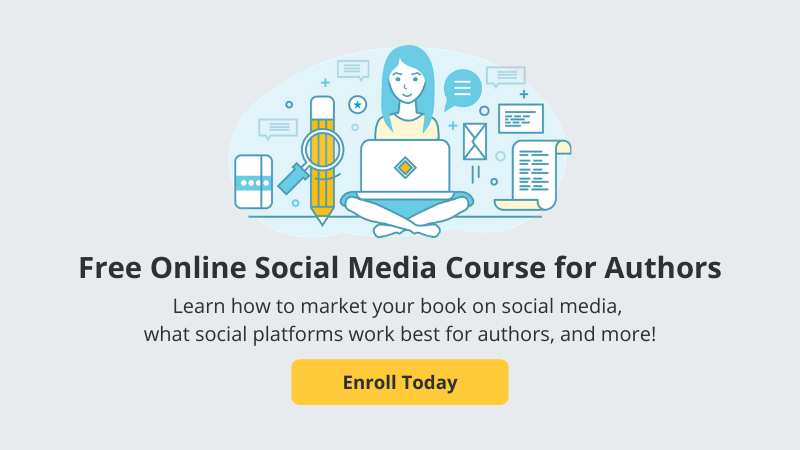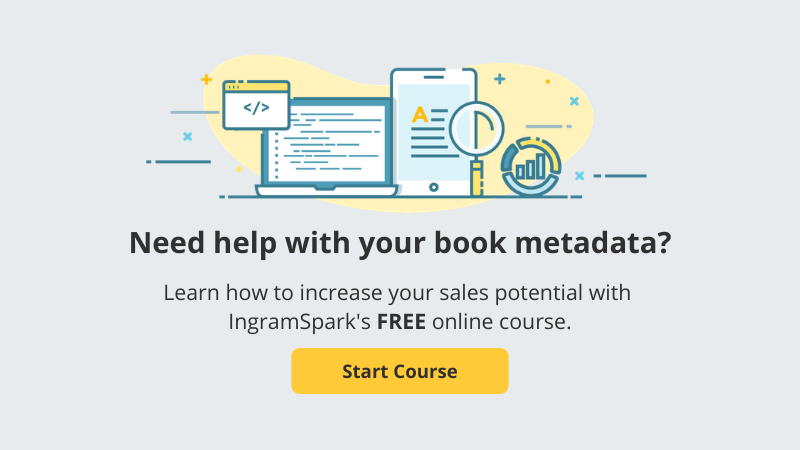With so many book marketing strategies available to promote your book, it's easy to get overwhelmed and have difficulty determining what to do and when to do it to give your book the best chance. Marketing a book is a complex part of the overall publishing process and takes proper planning. This book marketing timeline for indie authors is designed for the author who is just about to begin writing, however since all these strategies are important, you can begin to address each one no matter where you are in your publishing process.
With so much information to digest and so many strategies available, it’s best to give yourself plenty of time to set these strategies in motion. To stay organized it’s a good idea to have a marketing calendar specifically for your book marketing. In this post, we're going to examine seven different phases of the book marketing timeline.
7 Phases of the Book Marketing Timeline
- Before You Begin Writing
- As You Begin Writing
- While You're Writing
- While Your Book is Being Edited
- Two Weeks Before Release
- Release Date
- Post Release
Step 1: Before You Start Writing
Creating a detailed book marketing plan or author business plan will help you think about all the strategies and efforts that will be necessary to market your book correctly. Knowing that success is measured differently; it is essential to understand what it means for you.
Before you create a marketing plan, it’s a good idea to get your arms around these questions as they will affect your overall book marketing strategy.
- Who is your target audience and who did you have in mind when you wrote the book?
- What are your goals with your book?
- If you wrote the book to make money, how many books do you want to sell? (You can break this down into pre-release, first month, first quarter, and first year.)
- If you wrote the book to inspire others, how will you achieve this and position yourself as a subject matter expert on the topic you are writing about?
- If you wrote the book to add professional credibility, how will you measure this?
- It’s also important to know how much money you can spend on marketing and how to evaluate book marketing services.
Begin to list out what tools you will need to market, promote and distribute your book. This article will list most of them, but feel free to do additional research. Then create your timeline based on the one below. Start with choosing the date your book will be released and work backward. Feel free to enhance this timeline for your needs and most importantly, enjoy the ride.
Creating a Timeline is Key
One of the best recommendations I can make to any author is to create a timeline for your entire project including the writing, publishing, and marketing phases. It’s okay to look at each phase as an individual project, but you should have an overview of the entire process so that each phase is completed on time and within budget. A timeline keeps you focused and avoids stress.
Step 2: As You Begin Writing
Use your judgment during this time to make sure you are focusing on your writing. You can perform any of the below tasks before you start writing or when you need a mental break.
Build Your Author Brand
Become more marketable by creating a unique author brand and displaying it across all social platforms, websites, and collateral material. A brand might be a logo, your name, or a series name and include specific colors, font styles, or wording. It might represent the message of your book. Be creative.
Craft Your Book Metadata
Begin working on your book metadata including your book description and author bio. Understand the importance of BISAC subject codes and which ones are the most relevant for your book. Make sure you understand how compensation works, the costs associated with printing and the plethora of tools when using a book distribution service. IngramSpark has a Publisher Compensation Calculator which will help you determine how much you will earn from your titles sold through the distribution channels.
Take IngramSpark's Free Online Book Metadata Course
Create Your Author Website
Create a 5-page author website. Include an About the Author page, About the Book page, Blog, Contact the Author page, and a Homepage. You can add pages as time goes on, but this is all you need to get started.
 Build Your Email List
Build Your Email List
Start building your email list by offering something in return for an email address (think giveaway, contest, or free content). Place email signup forms on your website, social media accounts, and in your email signature. Start communicating with your list by sending a newsletter with an article related to your book’s message, some interesting facts or news about the same, and a promotion or giveaway related to your upcoming book. This strategy should continue to evolve as you gain more followers and become more marketing savvy.
Devise Your Social Media Strategy
Begin formulating your social media strategy by using one or two platforms you feel would be best for reaching your target audience. It’s better to direct your time mastering one social platform than do an average job on several. Create a mix of memes, posts, tweets, articles, and other content relevant to your book’s message. 20% of the time should be for promoting your book or bringing your followers on your publishing journey. 80% of the time should be content interesting to your followers that does not directly promote your book.
Revise Your Social Media Strategy
Two other social websites that shouldn’t be ignored are Goodreads and YouTube. Although both are not considered traditional social media platforms, they offer similar strategies for attracting and acquiring loyal followers and building your brand.
On Goodreads, authors can promote and advertise their books while connecting with readers and other authors. It’s also a great resource for finding readers who will review your book.
YouTube offers authors a chance to post and promote video content along with searchable text within the body of each post. Authors should find a way to create thought-provoking videos and post them consistently. Reading excerpts from your book, and posting a book trailer or author interview are great ways to promote your book, message, and brand.
Step 3: While You're Writing (3-6 months)
When you take a break from writing to focus on book marketing, you will most likely gain a deeper appreciation of your writing, as most authors would rather write than market their books. When you come back to your writing, you should have renewed energy to continue with your book.
Research Book Reviewers
Make a list of book review companies and their requirements. Send advanced review copies of your book to organizations that require unpublished work and have long lead times. There is a growing list of reviewers, bloggers, and companies like NetGalley that accept advanced digital copies. Think about any influencers you might know who would read and review your book. This strategy should continue even after the release.
Start a Blog
Start blogging about the subject matter and message from your book. Look to create a blog article monthly going forward.
Create a Media Kit
Create a media kit including information about the book, your background, your professional author photo, any book publicity surrounding the project along with answers to what could be common customer/media questions. Add this to your website on the ‘About You’ page.
Pre-Publishing Strategy Update
During these months or sooner, it’s a good idea to get a jump on your author marketing platform by preparing and printing out Advanced Reader Copies (ARCs) of your book. These copies can be sent to book review companies, especially those who require books to be received at least 90 days before the publishing date. Sending a book to a newspaper or magazine 3-4 months before the publishing date suggests that the author/publisher is a seasoned professional and understands the book industry.
Most importantly, having the publishing date out several months gives the author time to build up their following and get all components of their author platform ready for a successful book launch.
Consider Events
Be true to yourself and decide if you are comfortable speaking to people face-to-face, in front of a camera, or over the phone on a live radio interview. This will help shape your book marketing strategy and allow you to focus on your strengths. If you are okay with public speaking, make a list of any book fairs or events, radio shows, or podcasts you should approach. As you talk to other authors and gain more experience, you will know which events to attend. Mark these on your marketing calendar.
While virtual events and technology have replaced face-to-face events, authors have had to rely on and adapt to technology more than ever before. Writers’ conferences, book clubs, and blog tours have become the ‘virtual’ norm for authors. They also provide an affordable and time-effective way to become a better writer and a more successful author.
Apply to Book Awards
Research and list out any book awards you might want to submit to, but be sure the award warrants the submission by using this checklist. Make sure you adhere to any deadlines and mark these on your marketing calendar.

Step 4: While Your Book is Being Edited (1-2 months)
The importance of having your book professionally edited cannot be understated, but while that's going on, you can be working on getting the following book marketing strategies in motion.
Pick Your Dates
Finalize your publication date and release date along with your pre-release strategy. Promoting your book relies on these dates so timing is critical.
Consider How You'll Sell Your Book
Create a book page on the author's website and decide how you'll sell your book. You can simply link to online retailers where your book is available. Or you can use shareable purchase links to offer discounts to friends and family, run promotions, or sell your book at events. Readers purchase your book, IngramSpark ships it, and you get paid. The best part? Even at discounted prices, you can earn more on each book you sell.
Research Options for Help
Gather information on book promotion companies and understand what is involved in pre-releasing a book. Many free and paid promotional companies can help you launch your book. Look into book tours, signings, and other digital and physical author events.
Start Creating Promotional Material
Create video content to promote on social media, your website, and your YouTube channel. Design and print any collateral material such as bookmarks or sell sheets. Create memes, blog posts, tweets, and articles and proactively build your following using social media best practices. Remember quality over quantity; and research post-scheduling software that can automate the posting process.
Research Reviewers
Make a list of book reviewers to approach about your book. There are many places you can solicit reviews starting with friends, colleagues, alumni, and review sources listed on the internet. Until organic reviews are appearing consistently, you will need to ask everyone to read and review your book. Your promotional efforts should bring in a percentage of reviews, but it’s up to you to get the others. Be creative and consistent.
Step 5: Two Weeks Before Release
Having a good book launch is essential. Your ranking, sales numbers, reviews, and overall activity play a role in building momentum, awareness, and validation.
Check Your Book Metadata
Once your book appears online, make sure all the book metadata is correct.
Enhance Your Presence in Online Book Communities
Create an Author Central account on Amazon and populate it with your author bio, images, and book trailer if you have one. Connect your blog feed allowing it to show on your author account. Set up your Goodreads account and begin to understand how you can benefit from using Goodreads.
Consider Advertising
Look for advertising opportunities that can complement any promotional strategies underway. These ad opportunities can be in print and digital format. Make sure you evaluate all press kits to determine if their ad lines up with your demographics and if the spend justifies the potential reach.
Step 6: Release Date
This period is about keeping the momentum moving. Visualize having many spinning plates in front of you. You will need to give each plate attention to keep it from crashing to the ground.
Watch your ranking and book numbers on Amazon. If you hit bestseller status, make sure you take a screenshot of your book page with the icon Amazon adds and promote it on social media. Being a bestseller is validating for your pre-release focus, but keep in mind your overall goal should be consistent monthly sales. If you have done a good job implementing a robust book marketing strategy, your numbers should stay fairly consistent.
Update social media and your website about the book release. Follow up on any promotions and giveaways to make sure they are launching.
Make sure you've created shareable purchase links that you can share with friends, family, followers and more.
Keep stoking the marketing fire!
Step 7: Post-Release Checklist
Approach local bookstores about carrying your book. If they agree, make sure you send local customers into that store to buy your book.
Follow up with each strategy on this timeline to make sure that you have completed all the tasks. It’s okay to approach and follow up with people who never responded or were initially not interested. It’s all about book sales, so if your book is selling people will be more inclined to be involved.

















